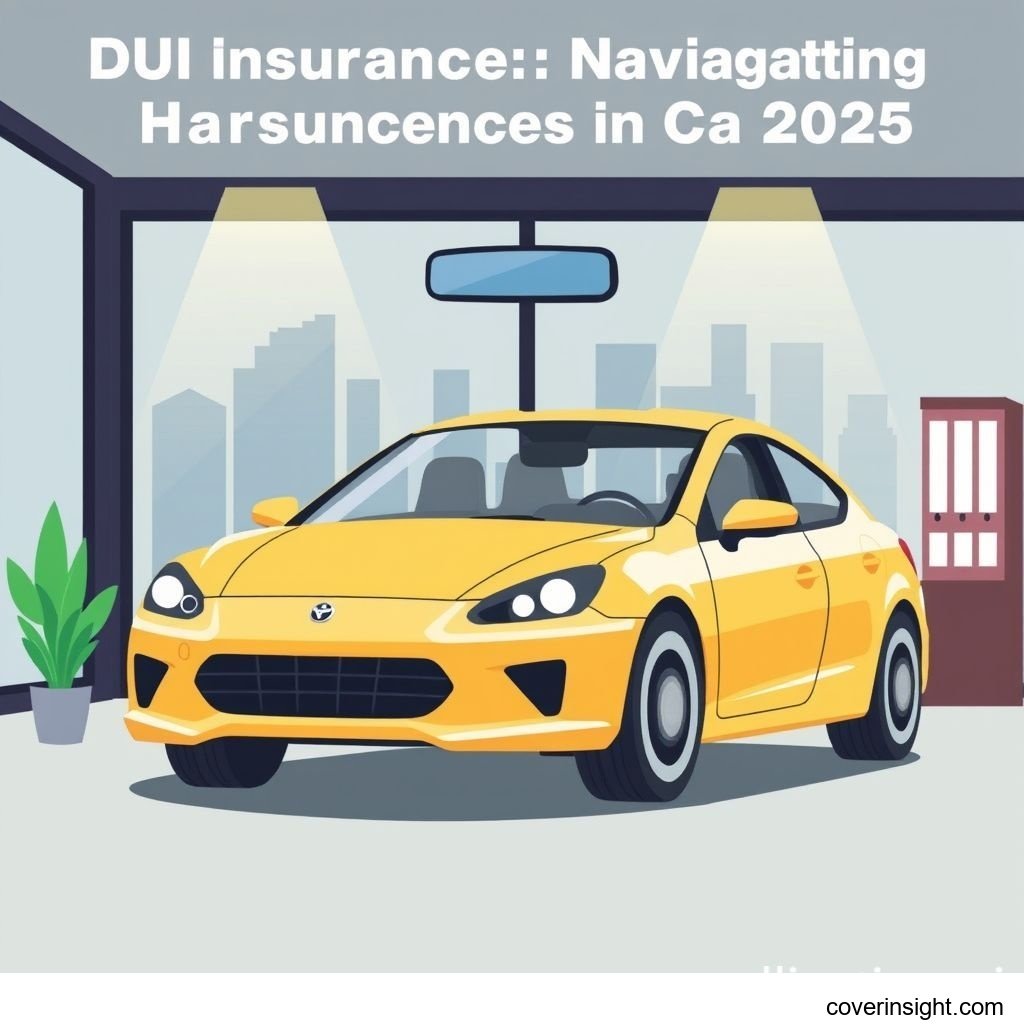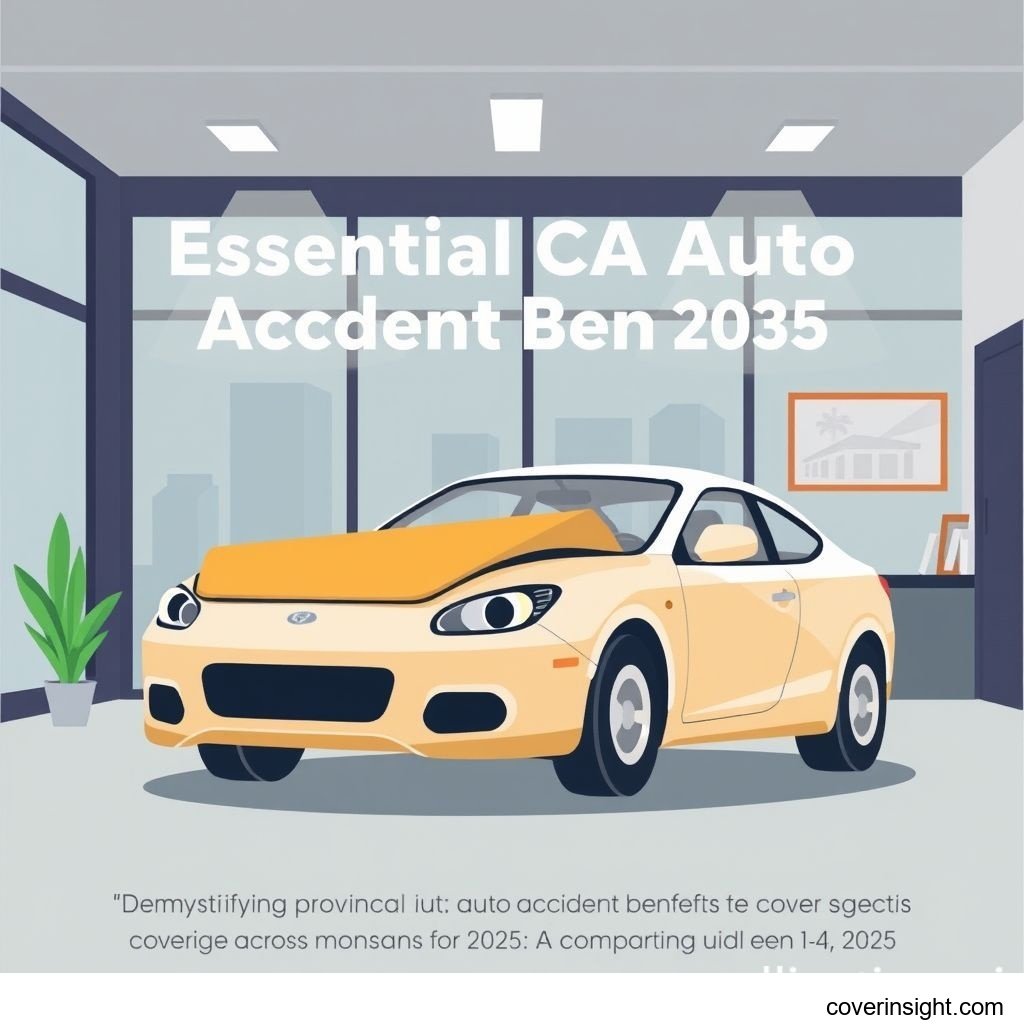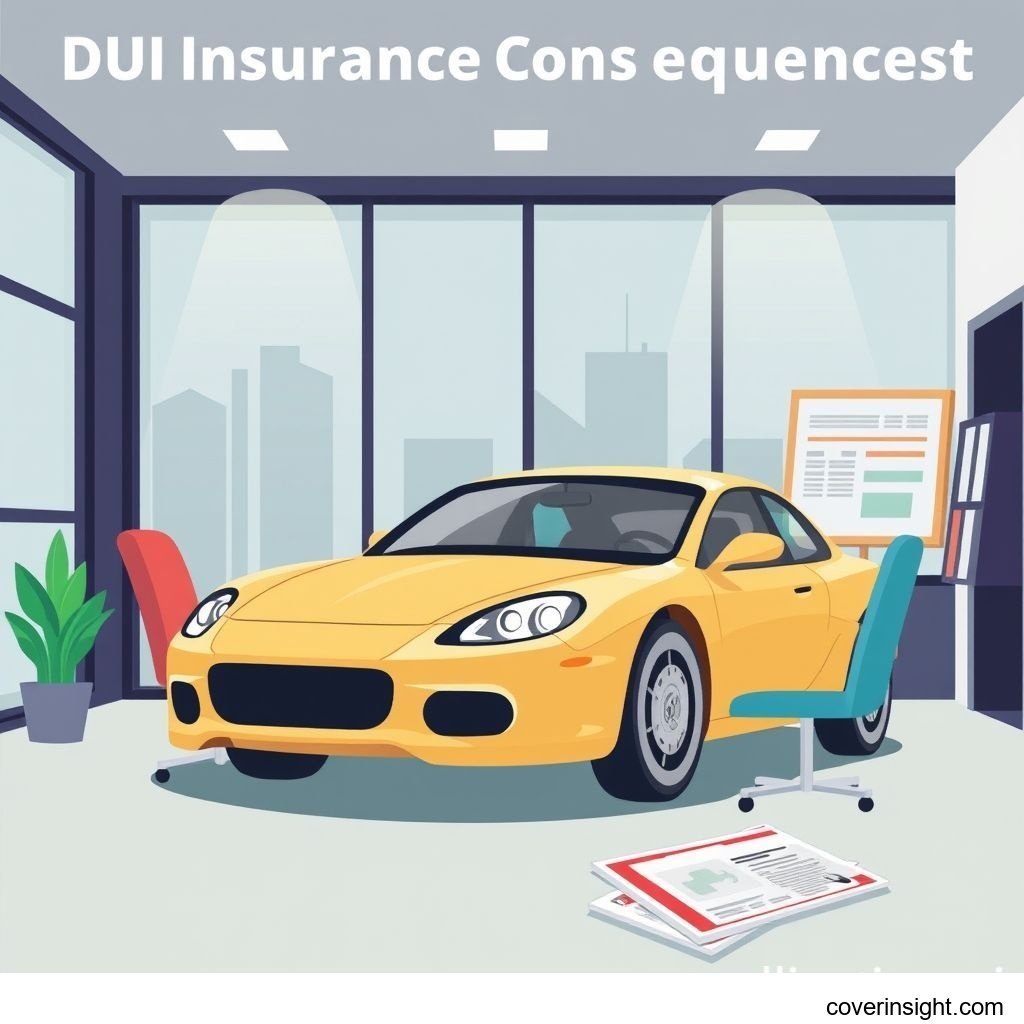Introduction
Facing a Driving Under the Influence (DUI) conviction in California for 2025 comes with a cascade of harsh consequences, not least of which is the significant impact on your auto insurance. Navigating DUI insurance consequences can feel like trekking through a dense forest without a compass. It’s not just about a higher premium; it’s about understanding a complex system designed to ensure public safety while holding drivers accountable. Securing the right DUI insurance isn't just a recommendation; it's often a legal mandate to regain driving privileges, making it an absolutely critical piece of the puzzle for anyone caught in this challenging situation.
Coverage Details
When you're dealing with the aftermath of a DUI, standard car insurance often doesn't cut it. You'll likely need specialized coverage that meets state-mandated requirements.
What’s Included
The cornerstone of DUI insurance in California is the SR-22 filing. This isn't an insurance policy itself, but rather a Certificate of Financial Responsibility that your insurer files with the California Department of Motor Vehicles (DMV), proving you have at least the state's minimum required liability coverage. This typically includes:
-
Bodily Injury Liability: Pays for medical expenses and lost wages for others if you cause an accident.
-
Property Damage Liability: Covers repairs to another person's vehicle or property if you're at fault.
Beyond the mandatory SR-22, your policy will also include the standard coverages you opt for, such as uninsured/underinsured motorist coverage, medical payments, and if you have a financed vehicle, comprehensive and collision coverage. While navigating your options, it's worth exploring broader topics related to "Insurance Resources Global" to gain a more complete understanding of various insurance types.
Common Exclusions
Even with specialized DUI insurance, there are limitations. Insurers typically won't cover:
-
Intentional Acts: If an act of damage or injury was intentional, it's almost certainly excluded.
-
Racing or Illegal Activities: Using your vehicle for street racing or other illegal activities (beyond the initial DUI, which triggers the need for this insurance) will void coverage for any resulting incidents.
-
Specific Vehicle Modifications: Some policies might exclude vehicles with certain aftermarket modifications not declared or approved by the insurer.
-
Exceeding Policy Limits: The policy only pays up to its stated limits; anything beyond that is your responsibility.
Cost Analysis
The phrase "DUI insurance consequences cost" often sends shivers down spines, and for good reason. It's a steep financial climb, but understanding the factors can help you manage expectations.
Price Factors
The premium for DUI insurance in California can feel like it costs an arm and a leg compared to standard rates. Several factors contribute to this significant increase:
-
Severity of the Offense: A first-time DUI with no accidents will typically incur a lower penalty than repeat offenses or those involving serious injuries.
-
Blood Alcohol Content (BAC): A higher BAC often leads to more severe penalties and, consequently, higher insurance costs.
-
Driver's Record: Your driving history prior to the DUI plays a role. A generally clean record might mitigate the increase slightly.
-
Age and Location: Younger drivers and those in urban areas with higher accident rates usually pay more. For example, a driver in Los Angeles might face higher premiums than one in a less dense rural area.
-
Vehicle Type: More expensive or higher-performance vehicles generally cost more to insure.
-
SR-22 Requirement Duration: In California, SR-22 is typically required for three years from the date your license is reinstated, but this can vary based on the offense. The longer the requirement, the longer you'll pay elevated rates.
-
Your Chosen Coverage Limits: While the SR-22 only requires minimum liability, many drivers choose higher limits for better protection, which adds to the cost.
Saving Tips
While getting a DUI puts you in a tough spot financially, there are still strategies to soften the blow.
-
Shop Around Aggressively: Don't settle for the first quote. Different insurers have varying appetites for risk, and their pricing models differ significantly for high-risk drivers. Websites and brokers can help compare multiple quotes, especially for high-risk policies.
-
Increase Deductibles: Opting for a higher deductible on comprehensive and collision coverage can lower your monthly premium, but be sure you can afford the out-of-pocket expense if you need to file a claim.
-
Bundling Policies: If possible, bundle your auto insurance with other policies like renters or homeowners insurance from the same provider. This often comes with a discount.
-
Take a Defensive Driving Course: Some insurers offer discounts for completing approved defensive driving or traffic school courses.
-
Maintain a Clean Record Post-DUI: This is perhaps the most crucial tip. Every day you drive without further incidents helps to slowly rebuild your driving record and, eventually, lower your insurance rates.
-
Look for Discounts: Ask about any discounts you might qualify for, such as low mileage, good student (if applicable), or anti-theft device discounts. For a comprehensive overview of how insurance companies structure policies and potential savings, considering exploring resources like the "Insurance Bureau of Canada" which provides general industry insights.
FAQs
How much does DUI insurance consequences cost?
There's no single answer, as costs vary widely based on the factors mentioned above. However, expect your premiums to increase anywhere from 100% to 400% or even more compared to your pre-DUI rates. For a first-time DUI, drivers often see their annual premiums jump from $1,500 to $4,000-$7,000 or higher. For instance, according to data from the California Department of Motor Vehicles (DMV), a first-time DUI conviction typically results in a license suspension and mandatory SR-22 filing for at least three years, leading to sustained high insurance costs throughout that period.
What affects premiums?
As discussed, premiums are affected by the severity of the DUI, your BAC, your driving history, age, location within California, the type of vehicle you drive, and the duration of your mandatory SR-22 filing.
Is it mandatory?
In California, if your license has been suspended or revoked due to a DUI, you will be required to obtain an SR-22 filing to reinstate your driving privileges. This means you must have an active auto insurance policy that meets the state's minimum liability requirements, and your insurer must file the SR-22 form on your behalf. There's no two ways about it; it's a non-negotiable step to get back behind the wheel legally.
How to choose?
Choosing DUI insurance involves comparing quotes from multiple providers, ensuring they offer SR-22 filing, and understanding the policy's terms and conditions. Look for an insurer with good customer service, as you'll be interacting with them frequently, especially regarding the SR-22. It's often beneficial to work with an independent insurance agent who specializes in high-risk policies. For general guidance on consumer rights and choosing financial products, the "Financial Consumer Agency" can be a helpful external resource. You can also visit "CA Insurance Home" for California-specific regulations and consumer information.
Consequences of no coverage?
Driving without the required SR-22 filing and active insurance in California after a DUI conviction can lead to severe consequences. These include further license suspension, significant fines, vehicle impoundment, and even jail time. Essentially, it compounds your legal troubles and pushes the possibility of regaining your driving freedom further out of reach.
Author Insight & Experience:
As someone living in California, I've seen firsthand how a DUI can turn someone's life upside down, financially and personally. It's not just about the court fees and the ignition interlock devices; the insurance hike is a continuous, painful reminder for years. Based on my observations, many people are caught off guard by the sheer expense and complexity of the SR-22 process. My advice? Get down to brass tacks early, understand every requirement, and don't hesitate to seek professional guidance. It's a tough road, but with diligent navigation, you can get through it. For those looking for broader insights into challenging insurance situations, a resource like "DUI Insurance Consequences: Crucial Guide for Canadians 2025" might offer a comparative perspective on how different regions handle similar issues.








Comments